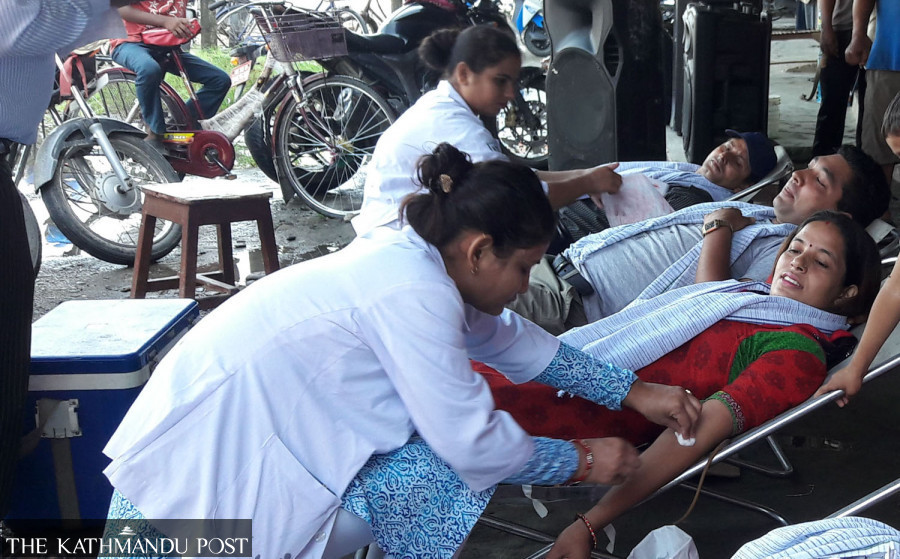Health
Central blood bank in surplus as Gen Z protest spurred donations
Officials say this Dashain is the first in several years when the bank has not had to ask the public for donations.
Post Report
Unlike in the past, the Central Blood Transfusion Service is not facing an acute blood shortage during this year’s Dashain festival, which is two weeks away, as there is sufficient stock in place.
Following last week’s Gen Z protests, a surge of panic donations has led to the service, better known as blood bank, to ask the public to donate only when there is a need or an official request for it, officials say.
“For the first time in several years, we will not have a blood shortage during Dashain,” said Sanjeev Kumar Yadav, senior technical officer at the transfusion service. “We need more blood after Dashain, during Tihar and Chhath festivals so we have been requesting prospective donors to donate only when requested.”
Every year during major festive seasons, patients in Kathmandu Valley reel under acute scarcity of blood. People from outside the Valley who come to the capital city for surgery have suffered the most.
The blood bank has had to appeal to the general public and organisations for donations, and relatives of patients have often been asked to donate for replacement. Officials in the Valley would even request Red Cross offices in other districts to send blood.
Hundreds of youths in the Valley and across the country have donated blood voluntarily after the September 8 carnage caused by brutal use of force against youth demonstrators, who were protesting rampant corruption in the country.
Officials say that the bank already has over 1,000 pints of blood in stock and daily collections are more than enough to meet demand. Currently, over 150 people are donating blood every day and that is sufficient to cover hospital needs. Most major hospitals also have their own blood banks, which collect and supply blood to patients.
“Panic donations and the postponement of elective surgeries by major hospitals in Kathmandu Valley have created a surplus in blood banks,” said Yadav. “Hospitals will resume planned surgeries after Dashain, when demand for blood will rise. Unnecessary collection now could lead to waste.”
As the risk of major dengue outbreak still persists and the post monsoon season is considered a high-risk season, officials say demand for the fresh blood could rise after Dashain. They say if donation programmes are not carried out prudently, it would be difficult to manage the looming crisis.




 14.12°C Kathmandu
14.12°C Kathmandu














